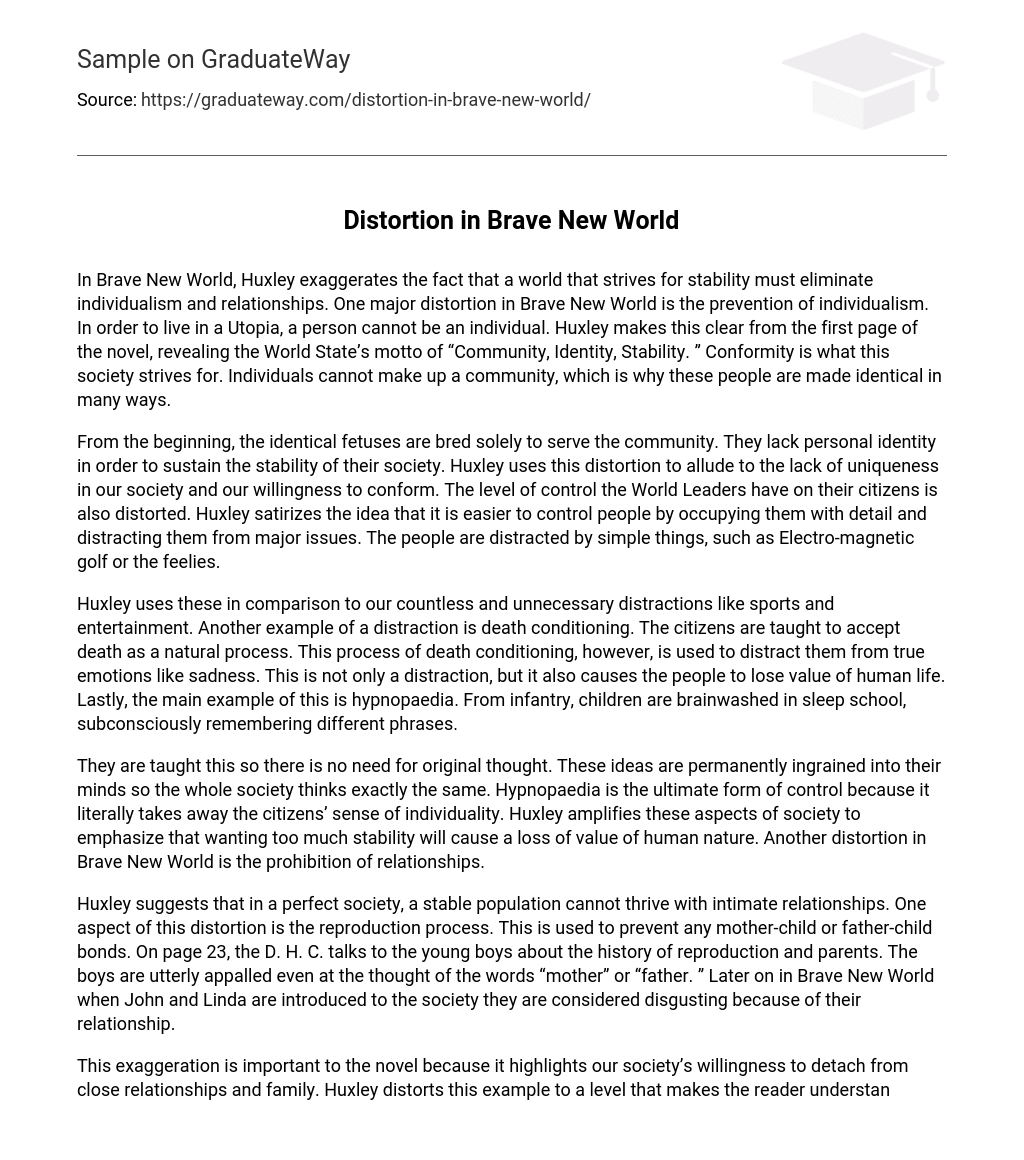In Brave New World, Huxley emphasizes the idea that in order to achieve stability, individualism and relationships must be eradicated. The prevention of individualism is a prominent theme in the novel. To live in a Utopia, one cannot be an individual. Huxley highlights this from the beginning of the book, when he introduces the World State’s motto of “Community, Identity, Stability.” The society aims for conformity rather than individuality. As a result, people are made identical in various aspects to form a unified community.
From the commencement, the clones are specifically created for the purpose of benefiting the community. They lack individual identity for the purpose of maintaining their society’s stability. Huxley employs this alteration to indirectly reference the absence of distinctiveness in our own society and our inclination to conform. The extent of control exerted by the World Leaders over their citizens is equally distorted. Huxley sarcastically presents the concept that it is more effortless to manipulate individuals by engaging them with trivial matters and diverting their attention from significant concerns. The individuals become engrossed in mundane activities, such as Electro-magnetic golf or the feelies.
Huxley employs various distractions, such as sports and entertainment, to exemplify our numerous and superfluous diversions. Death conditioning serves as another form of diversion, wherein citizens are instructed to embrace death as a natural phenomenon. Yet, this practice functions as a means to divert individuals from experiencing genuine emotions like sadness. It not only serves as a distraction but also leads to a depreciation of the worth of human life. Ultimately, hypnopaedia serves as the primary illustration of this concept, in which children are subjected to subconscious programming through sleep school, ensuring they retain an assortment of phrases from an early age.
In Brave New World, individuals are taught to eliminate original thinking, with ideas permanently encoded in their minds to ensure uniformity throughout society. Hypnopaedia serves as the ultimate method of control, stripping citizens of their sense of individuality. Huxley magnifies these societal aspects to highlight the devaluation of human nature resulting from an excessive desire for stability. Another deviation seen in the novel involves the prohibition of relationships.
Huxley proposes that intimate relationships are not possible in a perfect society, as they hinder a stable population. One way this is accomplished is by controlling the reproduction process to avoid forming bonds between parents and children. On page 23, the D. H. C. discusses the history of reproduction and parents with the young boys. The boys find the idea of “mother” or “father” repulsive. In Brave New World, John and Linda are seen as repugnant because of their relationship when they are introduced to society.
The exaggeration in the novel is significant as it emphasizes how society is willing to disconnect from close relationships and family. Huxley takes this example to an extreme level in order to help the reader comprehend this issue in his society. Another distortion in Brave New World is the prevalence of promiscuity. Huxley criticizes society’s acceptance of substituting real relationships with casual sex. In the civilization depicted in Brave New World, having relations with only one partner is actually discouraged.
On page 40, Fanny expresses disapproval of Fanny’s continued relationship with Henry Foster. The society portrayed in the novel lacks intimacy and values physical gratification over emotional connection, leading to the use of sex as a distraction. Huxley uses this portrayal to critique our society’s disregard for meaningful relationships, highlighting evidence of this problem in modern times.





